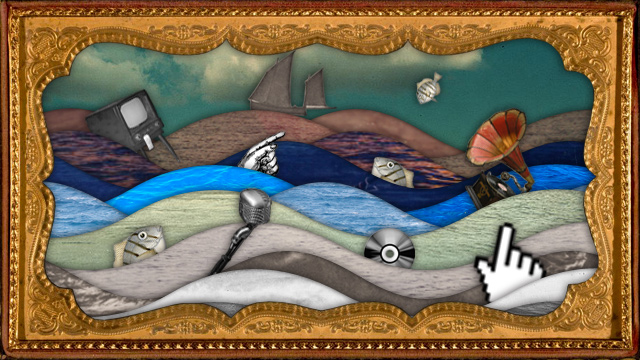The trajectory of McLuhan’s thoughts on the context of Brazilian Communication
DOI:
https://doi.org/10.15448/1980-3729.2013.1.11967Keywords:
Communication, McLuhan, Brazil, Theories of CommunicationAbstract
The purpose of this research is to reflect on the history and the repercussion of McLuhan´s thoughts on Communication in Brazil. Since the translation of McLuhan’s early works into Portuguese, still in the 1960s, Brazilian Communication thought has found itself deeply marked by the ideas of this eminent author. To undertake this research, we reviewed articles, books and Brazilian dictionaries of Communication in order to understand how McLuhan was referenced and understand. This analysis allowed the construction of three phases that we consider essential to understand the impact of McLuhan´s thought in Brazil: ambiguity, silence and appropriation. Despite the other phases, the latter is marked by an appropriation of the ideas of the author, especially because of the advent of the Internet, which definitely marks McLuhan as one of the leading thinkers of this era.Downloads
References
DEFLEUR, Melvin L.; BALL-ROKEACH, Sandra. Teorias da Comunicação de Massa. 5. ed. Rio de Janeiro: Jorge Zahar, 1993.
GASTAL, Susana. McLuhan: desdobramentos polêmicos de uma teoria (ainda) polêmica. Revista Famecos: mídia, cultura e tecnologia, Porto Alegre, n. 22, p. 46-54, dez. 2003.
GOBBI, Maria Cristina. Introdução – contribuições brasileiras para os estudos comunicacionais. In: HOHLFELDT, Antonio e GOBBI, Maria Cristina (Orgs.). Teoria da Comunicação – antologia de pesquisadores brasileiros. Porto Alegre: Sulina, 2004.
HOHLFELDT, Antonio. Diferentes gerações de pesquisadores brasileiros produzem acúmulo considerável de conhecimento na Comunicação Social. In: HOHLFELDT, Antonio; GOBBI, Maria Cristina (Orgs.). Teoria da Comunicação – antologia de pesquisadores brasileiros. Porto Alegre: Sulina, 2004.
KATZ, Chaim Samuel; DORIA, Francisco Antonio; LIMA, Luiz Costa. Dicionário Básico de Comunicação. Rio de Janeiro: Paz e Terra, 1975.
KATZ, Elihu. A propôs des médias et de leurs effets. In: SFEZ, L. (org.). Technologies et Symboliques de la Communication. Colloque de Ceresy 1988 Press Universitaire de Grenoble, 1990, p. 275-282.
LASSWELL, Harold. The structure and function of communications in society. In: BRYSON (Org.). The communications of ideas. Nova Iorque: Harper, 1948.
LIMA, Luiz Costa. Teoria da Cultura de Massa. 6. ed. Rio de Janeiro: Paz e Terra, 2002.
LOPES, Maria Immacolata Vassalo de. Pesquisa em Comunicação. 9. ed. São Paulo: Edições Loyola, 2005.
MARTINO, Luiz Cláudio. Pensamento Comunicacional Canadense: as contribuições de Innis e McLuhan. Comunicação, Mídia e Consumo, São Paulo, v. 5, n. 14, p. 123-148, nov. 2008.
MCLUHAN, Marshall. Os meios de comunicação como extensões do homem. São Paulo: Cultrix, 1964.
______. Os meios são as mensagens. Rio de Janeiro: GB, 1969.
MIEGE, Bernard. O pensamento comunicacional. Petrópolis: Editora Vozes, 2002.
RABAÇA, Carlos Alberto; BARBOSA, Gustavo Guimarães. Dicionário de comunicação. 2. ed. Rio de Janeiro: Campus, 2001.
ROMANCINI, Richard. O campo científico da Comunicação no Brasil: institucionalização e capital científico. 2006. Tese (Doutorado em Ciências da Comunicação) – Escolas de Comunicação e Artes, Universidade de São Paulo, São Paulo, 2006.
TEIXEIRA, Anísio. Prefácio. In: MCLUHAN, Marshall. A galáxia de Gutenberg: a formação do homem tipográfico. São Paulo: Editora Nacional, Editora da USP, 1972. 390 p.
TREMBLAY, Gaëtan. De Marshall McLuhan a Harold Innis ou da Aldeia Global ao Império Mundial. Revista Famecos: mídia, cultura e tecnologia, Porto Alegre, n. 22, p. 13-22, 2003.
WOLF, Mauro. Teorias da Comunicação. 4. ed. Lisboa: Presencial, 1995.
Downloads
Published
How to Cite
Issue
Section
License
Copyright
The submission of originals to Revista Famecos implies the transfer by the authors of the right for publication. Authors retain copyright and grant the journal right of first publication. If the authors wish to include the same data into another publication, they must cite Revista Famecos as the site of original publication.
Creative Commons License
Except where otherwise specified, material published in this journal is licensed under a Creative Commons Attribution 4.0 International license, which allows unrestricted use, distribution and reproduction in any medium, provided the original publication is correctly cited.






